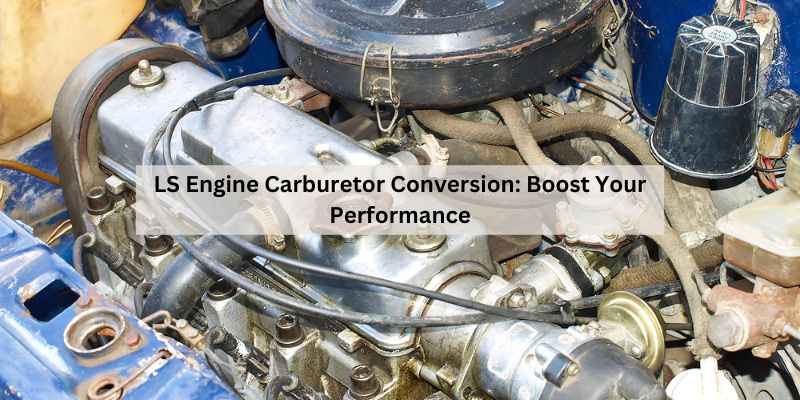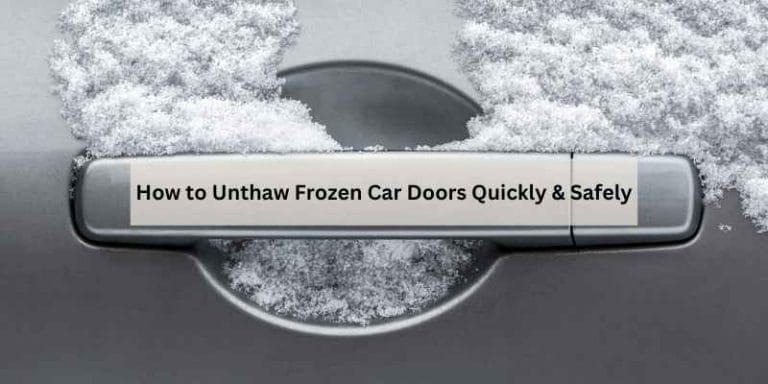Ls Engine Carburetor Conversion: Boost Your Performance
The LS engine carburetor is designed to optimize fuel delivery in LS-series engines. It enhances performance by improving throttle response and horsepower.
LS engine carburetors play a crucial role in maximizing engine efficiency and power output. These carburetors are tailored for the unique characteristics of LS motors, making them a popular choice among performance enthusiasts. They provide precise fuel-air mixtures, which are essential for achieving optimal combustion.
Many aftermarket options are available, allowing users to choose based on their specific needs. Upgrading to an LS carburetor can dramatically improve acceleration and torque. Understanding the features and benefits of these carburetors helps ensure you select the right one for your vehicle. Investing in a quality LS engine carburetor can significantly enhance your driving experience and overall engine performance.
Introduction To Ls Engine Carburetor Conversion
LS engine carburetor conversion offers many exciting benefits. First, it can improve performance. Carburetors often provide a more responsive throttle. They can also enhance fuel efficiency in certain situations.
Another reason to consider this switch is cost. Carburetors are usually less expensive to maintain. They can also be easier to tune for specific needs.
Many enthusiasts enjoy the classic feel of a carburetor. It can bring a nostalgic experience to driving. Lastly, the availability of parts for carburetors is often better than for complex fuel injection systems.
Carburetor Vs. Fuel Injection: A Comparative Analysis
The carburetor and fuel injection systems differ in performance. Carburetors mix air and fuel using mechanical parts. This method can lead to less precise fuel delivery. Fuel injection provides a more accurate fuel mix. This often results in better engine performance and efficiency.
Cost is another important factor. Carburetors are generally cheaper to buy and install. They require less complex technology. Fuel injection systems are usually more expensive upfront. However, they can save money on fuel in the long run.
Maintenance costs also vary. Carburetors need regular adjustments and cleaning. Fuel injection systems require less frequent servicing. This can lead to lower overall costs.
Choosing The Right Carburetor For Your Ls Engine
Choosing the right carburetor for your LS engine is crucial. Sizing and CFM requirements play a big role in performance. A good rule of thumb is using 1 CFM for every 10 horsepower. For a 500 horsepower engine, aim for a carburetor with at least 500 CFM. This ensures proper airflow and fuel delivery.
Here are some top brand and model recommendations:
| Brand | Model | CFM |
|---|---|---|
| Holley | 750 Double Pumper | 750 |
| Edelbrock | Victor Series | 750 |
| Quick Fuel | Q-Series | 650 |
Essential Components For The Conversion
Carburetor adapter plates are important for an LS engine conversion. These plates help connect the carburetor to the intake manifold. They improve airflow and performance. Selecting the right plate is key for a successful setup.
Fuel system adjustments are necessary for optimal performance. Ensure the fuel pump provides enough pressure. Use high-quality fuel lines to prevent leaks. Adjusting the fuel pressure regulator is also vital. This ensures the right fuel mixture for the engine.
Step-by-step Conversion Process
Start by turning off the fuel supply. Disconnect the fuel lines carefully. Remove the existing fuel injection system from the engine. Ensure all wiring harnesses are unplugged. Use the right tools for safe removal.
Next, clean the intake manifold area. This ensures a good seal for the new carburetor. Place the gasket on the manifold. Align the carburetor properly on top of it.
Secure the carburetor using the bolts provided. Attach the throttle linkage and choke cable as needed. Connect the fuel line to the carburetor. Finally, check all connections for leaks before starting the engine.
Tuning Your Carburetor For Optimal Performance
Adjusting the air-fuel ratio is crucial for your engine’s performance. A correct ratio improves both power and efficiency. To start, check your carburetor settings. Use a wideband O2 sensor for precise measurements. Aim for a 14.7:1 ratio for optimal combustion.
Fine-tuning can bring more horsepower. If the ratio is too lean, the engine may run hot. Too rich can cause poor fuel economy. Regularly monitor the spark plugs to identify adjustments needed. Clean plugs indicate a good mix, while blackened plugs suggest a rich condition.
Always make small adjustments. Gradually change the settings to see the effects. This method ensures the best performance without sudden issues. Testing after each tweak helps find the perfect balance.
Common Challenges And Troubleshooting
Starting issues with your LS engine carburetor can be frustrating. Check the fuel supply to ensure it flows properly. Inspect the battery for a good charge. A weak battery may cause starting problems. Examine the ignition system for faulty components. Clean or replace spark plugs if needed.
Idle and stalling problems often occur due to a dirty carburetor. Clean the jets and passages to improve performance. Adjust the idle speed screw for better stability. A vacuum leak can also cause stalling. Check all hoses and connections for any cracks or leaks.
Real-world Success Stories
Many car enthusiasts have shared their success stories with the Ls Engine Carburetor. Improved engine performance is a common theme among users. One case study showed a 20% increase in horsepower. Another reported better fuel efficiency and smoother acceleration.
Feedback from professionals highlights the versatility of this carburetor. It works well in various vehicle types. Users appreciate the easy installation and tuning process. Many find it a great upgrade for their classic cars.
| Vehicle Type | Performance Improvement |
|---|---|
| Classic Muscle Car | Enhanced torque |
| Off-Road Truck | Better throttle response |
| Street Racer | Increased speed |
Frequently Asked Questions
Can You Carburate An Ls Engine?
Yes, you can carburate an LS engine. This involves installing a carburetor instead of using fuel injection. It requires an intake manifold designed for carburetors. Proper tuning is essential for optimal performance. Many enthusiasts choose this method for simplicity and increased power potential.
How Much Horsepower Does A 5.3 Ls Carbureted Engine Have?
A 5. 3 LS carbureted engine typically produces around 350 to 400 horsepower. This output can vary based on modifications and tuning. Performance parts and proper setup can enhance power levels, making it a popular choice for enthusiasts seeking reliable performance.
What Size Carburetor For 5.3 Ls?
A 5. 3 LS engine typically works well with a carburetor sized between 600 to 750 CFM. Choose a size based on your specific performance goals and modifications. A 750 CFM carburetor suits higher horsepower builds, while a 600 CFM is ideal for stock or mild setups.
Are Ls Engines Fuel Injected?
Yes, LS engines are fuel injected. They utilize advanced fuel injection systems for efficient performance and power. This technology enhances fuel delivery, optimizing combustion and improving overall engine efficiency. LS engines are popular for their reliability and tunability in various automotive applications.
Conclusion
Choosing the right LS engine carburetor can significantly enhance your vehicle’s performance. Understanding the various options available is crucial for making an informed decision. By considering factors like size, tuning, and compatibility, you can find the perfect match for your engine.
Elevate your driving experience with the right carburetor today.






